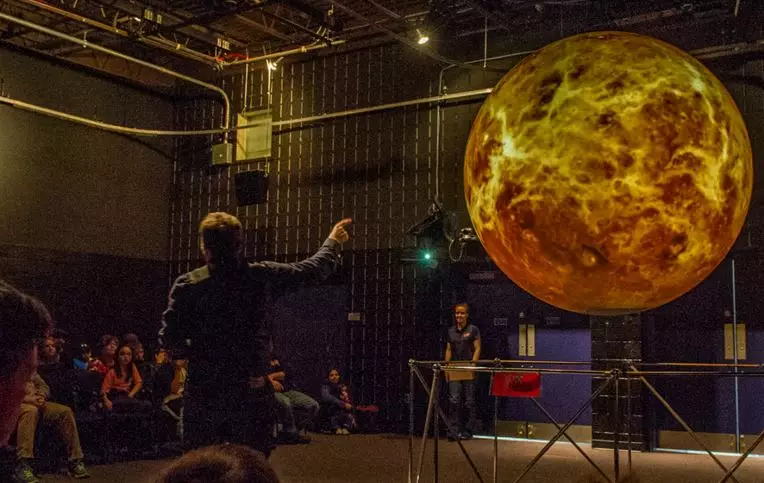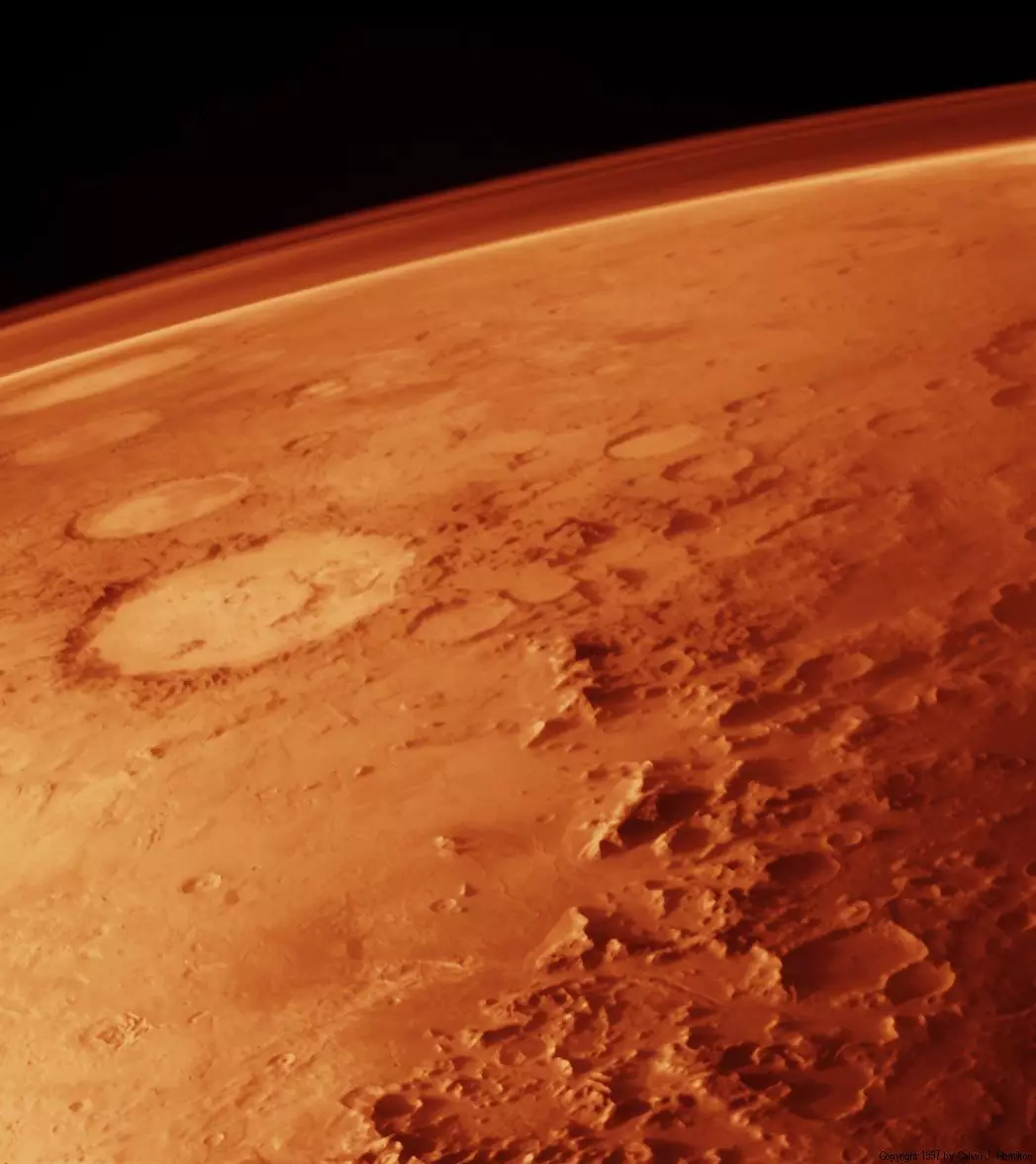
Scientists believe they've thought up an absolutely bonkers way of getting people to Mars in just thirty minutes, theoretically. We shit you not.
The outlandish idea was thought up by scientists working on NASA's Innovative Advanced Concepts program and is called directed energy propulsion. It would involve firing a laser at a tiny spacecraft to speed it up to a fraction of the speed of light, potentially allowing human missions to Mars extremely quickly indeed.
Philip Lubin from the University of California at Santa Barbara's Experimental Cosmology Group said, "We could propel a 100-kilogram (220-pound) robotic craft to Mars in a few days. Within about 25 light-years of the Earth there's actually quite a few potential exoplanets and habitable things to visit - that may be habitable, we don't know of course. So there are many targets to choose from. The closest is Alpha Centauri, which is about four light-years away."

In the paper titled A Roadmap To Interstellar Flight, Lubin explained how humans could use a wafer-thin spacecraft with a meter-sized 'laser sail', which would help the craft reach 26% of the speed of light in around 10 minutes.
Advert
It'd be able to get to Mars in 30 minutes, pass the Voyager 1 in 3 days and reach the closest star system to our own, Alpha Centauri, in around 15 years. All these travel times are completely unimaginable right now.
Here's a video explaining it all a bit better...
Apparently the technology is available right now unlike many other fantasies scientists have dreamed up over the years to do with space travel.
Advert
"This technology is NOT science fiction. Things have changed," added Lubin.
There are no projects currently in the works but the idea is massively exciting regardless of how far off it is from becoming reality.
If you want to read more about it, in more depth, you can do so at CNET here.
Featured image credit: NASA Goddard Space via Flickr
Featured Image Credit: